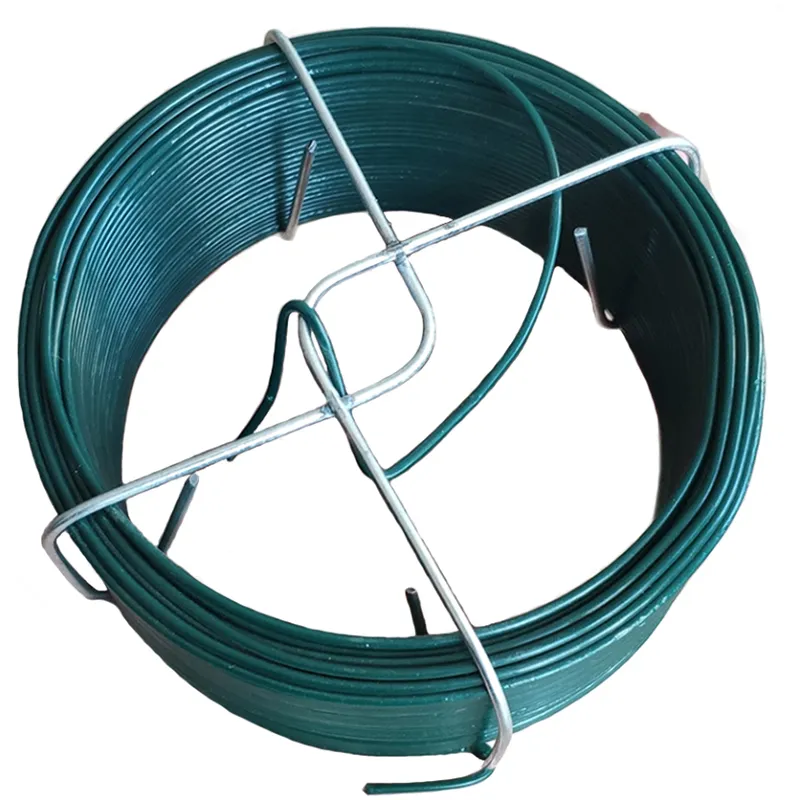-
 Phone:
Phone: -
 Email:
Email:

Durable and Flexible PVC Stay Wire Solutions for Various Construction and Landscaping Needs
The Importance of PVC Stay Wire in Modern Construction
PVC stay wire, a specialized form of wiring, plays an essential role in contemporary construction and infrastructure projects. With the increasing demand for durable materials that can withstand various environmental conditions, PVC stay wire has emerged as a popular choice among engineers and builders. This article explores the characteristics, applications, and advantages of PVC stay wire, underscoring its significance in modern construction practices.
Understanding PVC Stay Wire
PVC stay wire, also commonly referred to as PVC-coated wire, is a type of wire that has been coated with a layer of polyvinyl chloride (PVC). This coating provides a protective barrier against moisture, corrosion, and other environmental factors that can lead to degradation over time. The wire itself is typically made from high-strength steel, ensuring that it retains robustness while benefiting from the protective qualities of the PVC coating.
Applications of PVC Stay Wire
One of the primary applications of PVC stay wire is in guyed systems, which are essential for supporting structures such as telecommunication towers, power transmission lines, and wind turbines. In these contexts, stay wires help to stabilize the structure against lateral forces such as wind, preventing tilting or failure.
Additionally, PVC stay wire is widely used in agricultural applications where fencing and trellises are required. The durability of the PVC coating ensures that the wire can withstand the rigors of outdoor environments, including exposure to sunlight and precipitation. Farmers often utilize PVC stay wire for constructing fences that protect livestock and crops from intrusion while maintaining a long lifespan.
pvc stay wire

Moreover, PVC stay wire also finds uses in various construction settings, including scaffolding and temporary structures, where flexibility and strength are paramount. Its lightweight nature combined with its high tensile strength makes it an ideal choice for these applications.
Advantages of PVC Stay Wire
The advantages of PVC stay wire are numerous. Firstly, the PVC coating significantly increases the wire’s resistance to rust and corrosion. Unlike traditional metal wires that may corrode over time when exposed to moisture, PVC stay wire can maintain its integrity and usability for years, reducing the need for frequent replacements.
Secondly, the wire’s insulation properties help in electrical applications by preventing electrical conductivity, which is essential for safety in various engineering projects. By using PVC stay wire, engineers can ensure that installations avoid complications related to electrical shorts or other hazards.
Furthermore, the availability of PVC stay wire in various colors and sizes allows for versatility in design and implementation. This adaptability means that it can be aesthetically integrated into different settings without compromising functionality.
Conclusion
In summary, PVC stay wire is an indispensable component in modern construction and agriculture, providing durability, strength, and resistance to environmental factors. Its applications range from stabilizing large structures to serving practical roles in fencing and scaffolding. As builders and engineers continue to seek materials that enhance project longevity while being cost-effective, PVC stay wire stands out as a reliable choice. Its myriad benefits underscore the importance of incorporating innovative materials into construction practices, ensuring that structures are not only functional but also capable of withstanding the test of time. With the ongoing evolution of construction methods and materials, PVC stay wire is poised to remain a key player in shaping the future of infrastructure development.
-
Wire Mesh for Every Need: A Practical SolutionNewsJul.25,2025
-
Steel Fences: Durable, Secure, and Stylish OptionsNewsJul.25,2025
-
Roll Top Fencing: A Smart Solution for Safety and SecurityNewsJul.25,2025
-
Cattle Farm Fencing Solutions for Maximum SecurityNewsJul.25,2025
-
Affordable Iron Binding Wire SolutionsNewsJul.25,2025
-
Affordable Galvanized Wire SolutionsNewsJul.25,2025
-
Wire Hanger Recycling IdeasNewsJul.25,2025








